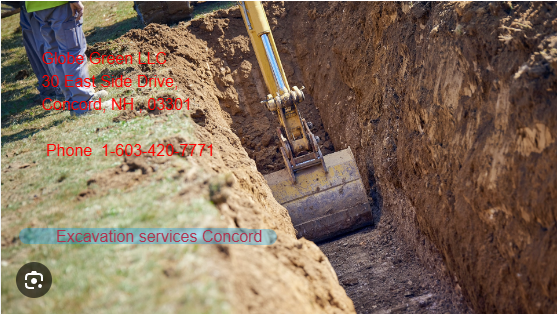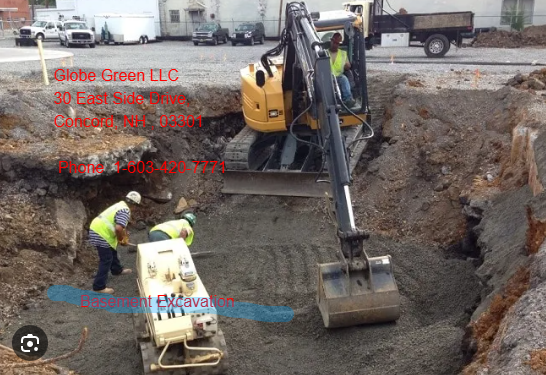Introduction
When it comes to home renovations or building projects, one area that often requires significant attention is the basement. Whether you're looking to create additional living space, establish a home gym, or simply improve your property’s value, basement excavation plays a crucial role. The process involves digging out the foundation and making room for what can become an essential part of any home. Given its importance, you might wonder: What are the innovative techniques in basement excavations today? In this article, we delve deep into the various methods employed by excavation companies near me, particularly focusing on what sets them apart.
What Are Innovative Techniques in Basement Excavations?
Understanding Basement Excavation
Basement excavation refers to the process of removing soil and debris from beneath a structure to create space for a basement. This requires precision and careful planning, particularly when considering factors like stability, drainage, and safety.
The Role of Excavation Contractors Concord NH
In Concord NH, hiring local experts like Globe Green LLC can make all the difference. These contractors know the lay of the land—literally—and have extensive experience with local soil types and conditions.
Importance of Site Preparation in Excavation
Before breaking ground, site prep is essential. This phase includes surveying the land, understanding zoning laws, and ensuring proper permits are in place. Effective site preparation is key to avoiding future headaches during excavation.
Innovative Technologies Transforming Basement Excavations
1. Advanced Machinery
Recent advancements in machinery have revolutionized how excavation companies operate. Equipment like mini-excavators can access tight spots without damaging surrounding structures. These machines enhance efficiency while minimizing disruption.
2. Laser Leveling Systems
Utilizing laser technology allows for precise grading and leveling of the ground before excavation begins. This ensures that your new basement will be structurally sound from day one.

3. Drone Surveys
Drones equipped with high-resolution cameras can survey large areas https://globegreenllc.com/snow-removal/ quickly and efficiently, providing invaluable data for excavation companies. Aerial views help assess potential challenges before they arise.
Key Techniques Used by Best Excavation Company in Concord NH
Trenching Techniques
Trenching is an age-old method but has evolved through modern technology. It creates narrow trenches suitable for water drainage systems or footings for retaining walls.
Open-Cut Methodology
Although more traditional than some newer techniques, open-cut excavation remains relevant due to its straightforward approach—digging out large sections at once allows for faster completion times.
Controlled Blasting
For homes near rock formations or dense soil layers, controlled blasting may be necessary to break up tough materials safely and efficiently.
The Process of Basement Excavation
Step-by-Step Overview
Initial Assessment- Conducting soil tests. Checking zoning requirements.
- Collaborating with architects. Designing layout plans.
- Securing necessary permits from local authorities.
- Clearing vegetation. Setting up barriers around the worksite.
- Using machinery to dig out specified areas.
- Installing drainage systems. Laying foundations as per design specs.
Critical Considerations During Excavation
Soil Type Analysis
Understanding what lies beneath your property is vital; different soil types require different handling techniques.

Water Table Levels
Knowing where the water table lies helps avoid flooding issues post-excavation.
Local Regulations
Each region has unique guidelines regarding excavation; it's crucial to comply with these regulations to avoid fines or project delays.

Retaining Walls: Their Importance in Basement Excavations
What Are Retaining Walls?
Retaining walls are structures designed to hold back soil and prevent erosion during heavy rains or after excavation.
Types of Retaining Walls Used in Basement Projects
- Gravity Walls: Utilize their weight to resist pressure from behind. Cantilevered Walls: Use leverage; these walls extend into the hillside. Anchored Walls: Have cables anchored into solid rock or soil.
Common Challenges Faced During Basement Excavations
Uneven Terrain
Dealing with sloped lots requires specialized equipment and techniques to ensure even excavation depth across different areas.
Unexpected Underground Obstacles
Rock formations or old utility lines can complicate even well-planned projects; having contingency plans ready is crucial!
FAQs About Basement Excavation Techniques
How long does basement excavation typically take?- The timeline varies based on size but usually takes anywhere from a few days to several weeks depending on complexity and weather conditions.
- Look for experience, local knowledge (like that offered by Globe Green LLC), customer reviews, and licensing/insurance credentials.
- Absolutely! Many contractors now offer sustainable practices such as using recycled materials or minimizing waste during excavations.
- Drainage should always be factored into your plan; improper drainage leads to flooding risks later on!
- While possible, it's usually advised against due to noise and dust unless extensive preparations are made ahead of time.
- Many contractors provide financing options or can recommend lenders who specialize in home renovation loans!
Conclusion
As we’ve explored throughout this article on “Exploring Innovative Techniques in Basement Excavations,” it’s clear that this field is not just about dirt moving—it's an intricate blend of technology, expertise, planning, and creativity! Whether you’re working with seasoned professionals like those at Globe Green LLC or diving into DIY projects yourself, understanding these innovative techniques will empower you on your journey toward creating that dream basement space you've always wanted! So get started today—your perfect underground paradise awaits!